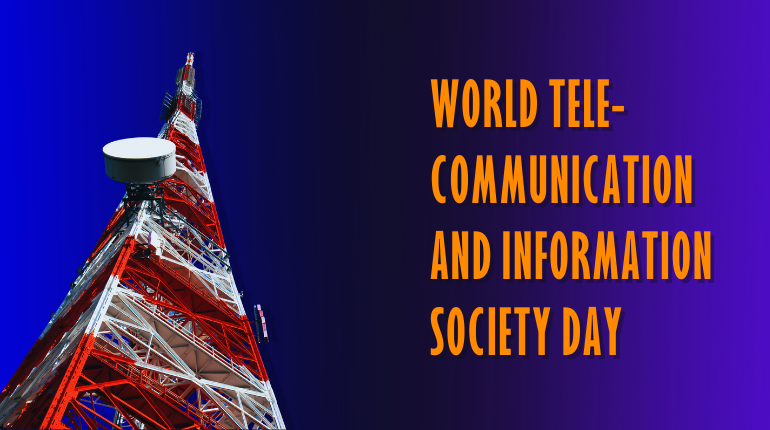World Telecommunication and Information Society Day
- Home
- World Telecommunication and Information Society Day

There is a global agreement that information and communication technologies (ICTs), particularly the internet, are offering a new framework and tremendous prospects for development on all fronts, economic, political and social. The connection challenge has grown more sophisticated and challenging during the last ten years. Getting everybody online is no longer sufficient. The ability to have an enriching, productive, safe, and inexpensive online experience is now required for meaningful connectivity. This continues to be a significant problem for the least developed countries (LDCs). LDCs run the danger of slipping further behind as the world gets more skilled at using the Internet to create value.
Telecommunication and information society day history :
Since 1969, the 17th of May has been declared as World Telecommunication Day in celebration of the founding of the ITU and the signing of the first International Telegraph Convention in 1865. The Plenipotentiary Conference in Malaga-Torremolinos, Spain, established it in 1973.
It has been suggested that information and communications technology (ICT) can be utilized as a tool to help developing nations meet their development objectives. At the same time, the majority of people in developing nations , particularly those who live in rural regions, do not have access to ICT. Even though there have been several initiatives to implement ICT, they have generally not been successful.
Telecommunication and information society 2023 theme:
Telecommunication day aims to increase public awareness of the benefits that the usage of the Internet and other ICT may have for society and economies as well as strategies for bridging the digital divide.In order to cover all facets of telecommunications and the information society, WTISD picks a distinct theme each year. These themes are a reflection of how opportunities and challenges in the digital world are changing. And this year's theme is " Empowering the least developed countries through information and communication technologies."
Telecommunication and information society effect on economy:
Over the past few decades, ICTs have had a significant impact on the economy, changing value chains as well as the production and sale of products and services. ICT adoption has the ability to boost production quality, commerce and economic development. As a result, ICTs have grown to be an increasingly significant tool for development.
Making these services affordable is still a challenge, though. The implementation of more sophisticated technologies and backbone networks, capable of handling enormous volumes of data at faster speeds, will be necessary for the adoption of ICT applications, particularly those that support the management of public activities and enhance the delivery of health services. In order for LDCs to take advantage of all the opportunities ICT has to offer to advance growth and promote sustainable development, the World Telecommunication and Information Society is putting into action a variety of international initiatives to hasten the deployment of ICT infrastructure, particularly broadband technology, facilitate the harmonization of ICT policies, and support the creation of an enabling policy environment. Because it becomes a right for all nations to be able to access and maximize the benefit of telecommunication and information technology to help the enhancement of living conditions.